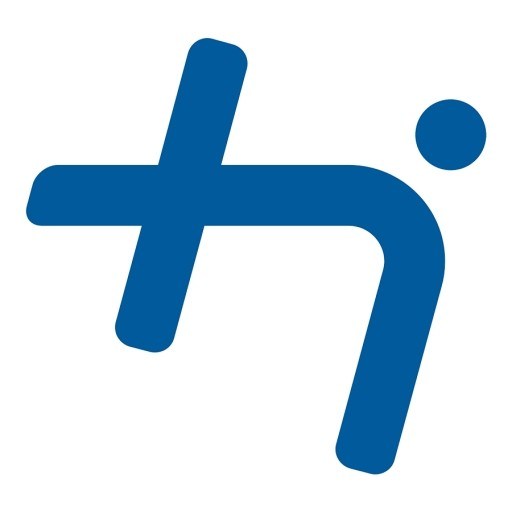Photos of university / #unizh
People-Oriented Computing at the University of Zurich is an interdisciplinary master's degree program designed to explore the intersection of human factors, technology, and design. This program aims to develop professionals who can create and evaluate user-centered digital solutions, emphasizing usability, user experience, and social impact. Students will gain a comprehensive understanding of how people interact with computing systems and learn to design interfaces and applications that are accessible, efficient, and engaging for diverse user groups. The curriculum combines theories and methods from computer science, cognitive psychology, design, and social sciences, fostering a holistic approach to the development of people-friendly technologies. Throughout the program, students are encouraged to undertake hands-on projects, internships, and collaborative research activities, enabling them to apply their knowledge in real-world contexts. The program prepares graduates for careers in user experience design, human-computer interaction, digital innovation, and related fields. It also promotes ethical, responsible, and sustainable use of technology, considering societal implications and promoting inclusive solutions. The teaching faculty includes experts in computer science, psychology, design, and social sciences, offering a broad perspective on People-Oriented Computing. The program is delivered through a combination of lectures, seminars, project work, and group discussions, allowing students to develop both technical skills and critical thinking. Graduates will be equipped to contribute to the development of user-centered digital products and services, participate in interdisciplinary teams, and lead initiatives that prioritize human needs and values in technological advancement. Enrollment is open to applicants with a background in computer science, cognitive sciences, design, or related fields who demonstrate a strong interest in human-centric technologies and innovative problem-solving approaches. The University of Zurich's People-Oriented Computing program is committed to fostering a community of learners dedicated to shaping the future of human-technology interaction.
- 60 ECTS credits to be earned from a customizable elective area and a Master’s project
- Master’s thesis comprising 30 ECTS credits
- Complemented by a minor program of choice comprising 30 ECTS credits and selected from the current programs on offer
- Normal period of study: four semesters
- Title awarded upon graduation: Master of Science UZH in Informatik (corresponds to Master of Science UZH in Informatics)
Major/minor subject combinations
In addition to the major study program comprising 90 ECTS credits, a minor study program comprising 30 ECTS credits is selected from the Faculty or from other UZH faculties.
- Proof of Competence in the English Language. IELTS 7.0, TOEFL iBT 100
- Admission to a Master’s degree program generally requires a Bachelor’s degree with a total of 180 ECTS credits from a university recognized by the University of Zurich.
- Acceptance to a Master's program in another field of study may be made conditional on acquiring additional knowledge and skills.
Expenses
Living expenses depend very much on the individual student. These figures should therefore be regarded as a guideline only (in CHF):
| Rent incl. heating | 550 |
| Additional expenses (telephone, internet) | 200 |
| Meals | 400 |
| Insurance | 250 |
| Travel | 80 |
| Clothing, laundry, personal items | 70 |
| Leisure, spending money | 150 |
| Teaching materials | 50 |
| Total | 1,750 |
The expected minimum cost of living for students therefore comes to a total of CHF 1,750 per month. Course fees come to around CHF 770 per semester.
The People-Oriented Computing program at the University of Zurich is designed to prepare students for interdisciplinary careers at the intersection of technology, society, and human behavior. This program emphasizes understanding the ways in which technological systems influence human experiences and how user-centered design can be used to develop more effective and ethical technological solutions. It combines principles from computer science, psychology, design, and social sciences to foster a holistic understanding of human-computer interaction, usability, and user experience.
Students in this program learn about cognitive psychology, interaction design, human factors, and social computing, equipping them with skills to analyze and improve the interfaces and functionalities of digital systems. The curriculum typically includes modules on user research, prototyping, interface design, data analysis, and system evaluation, as well as broader topics related to digital ethics and societal impacts of technology. Practical projects and hands-on training are integral components, allowing students to work on real-world problems, collaborate with industry partners, and develop portfolio-worthy projects.
The program aims to produce graduates who are capable of designing user-friendly and socially responsible technology solutions, with an understanding of diverse user needs and contexts. Career opportunities for graduates include roles in user experience (UX) design, human-computer interaction research, digital product development, usability testing, and consulting on digital transformation initiatives. Additionally, the program fosters research skills and prepares students for doctoral studies in related fields.
The university’s vibrant academic environment and strong ties with industry ensure that students receive a comprehensive education grounded in the latest developments in people-oriented computing. The program encourages critical thinking about the societal implications of technology and promotes innovative approaches to making digital systems more accessible, inclusive, and aligned with human values. It is suitable for students with interests in technology, social sciences, design, and psychology who seek to leverage their skills to improve human interactions with digital environments.
Admission requirements typically include a relevant undergraduate degree and proficiency in English, along with motivation and interest in interdisciplinary approaches. Graduates of the program are well-equipped to contribute to the development of user-centered digital systems, ensuring that technological advances benefit society at large. They are prepared to work in diverse sectors, including technology companies, public institutions, consulting firms, and research organizations, where they can help shape the future of human-computer interaction in a socially responsible way.








